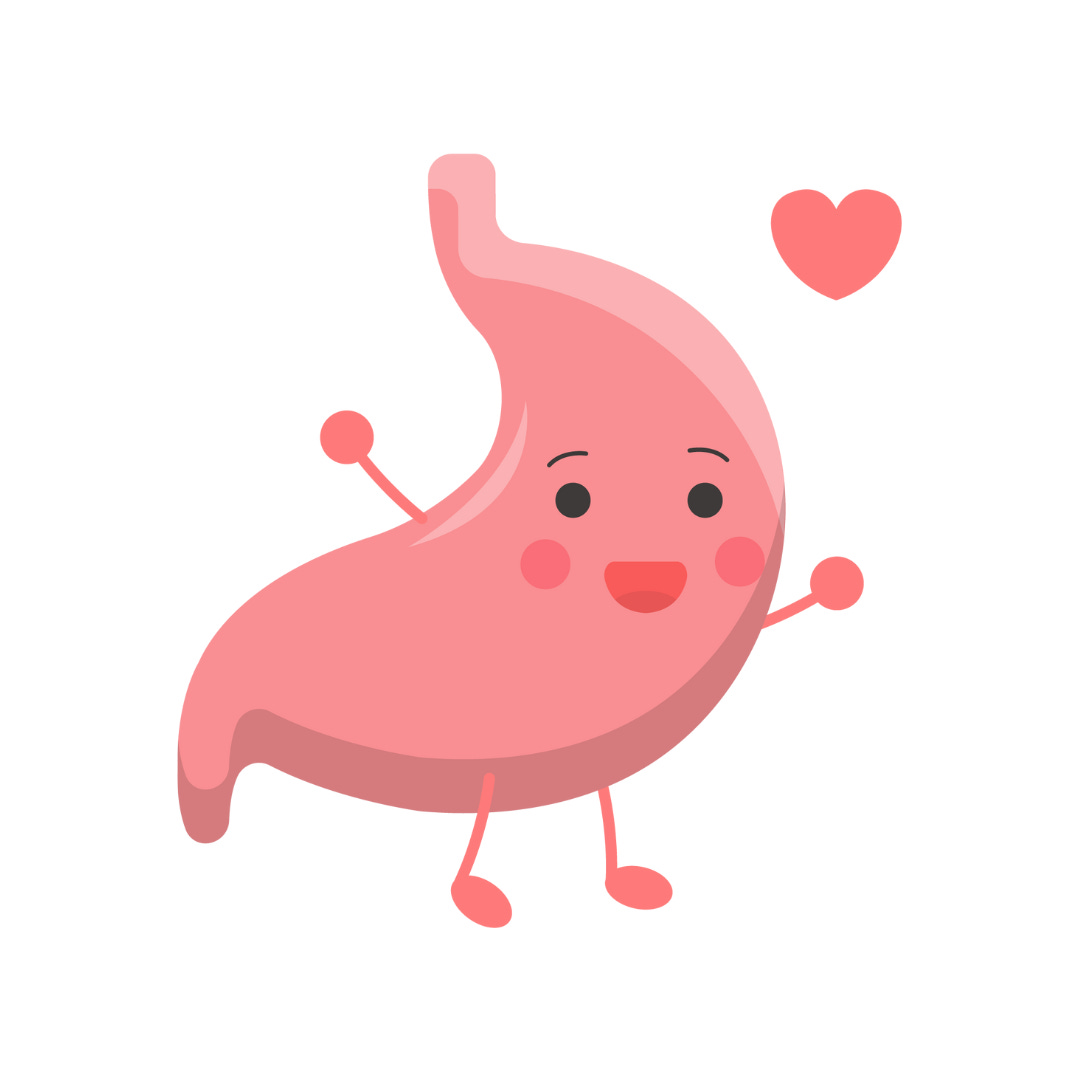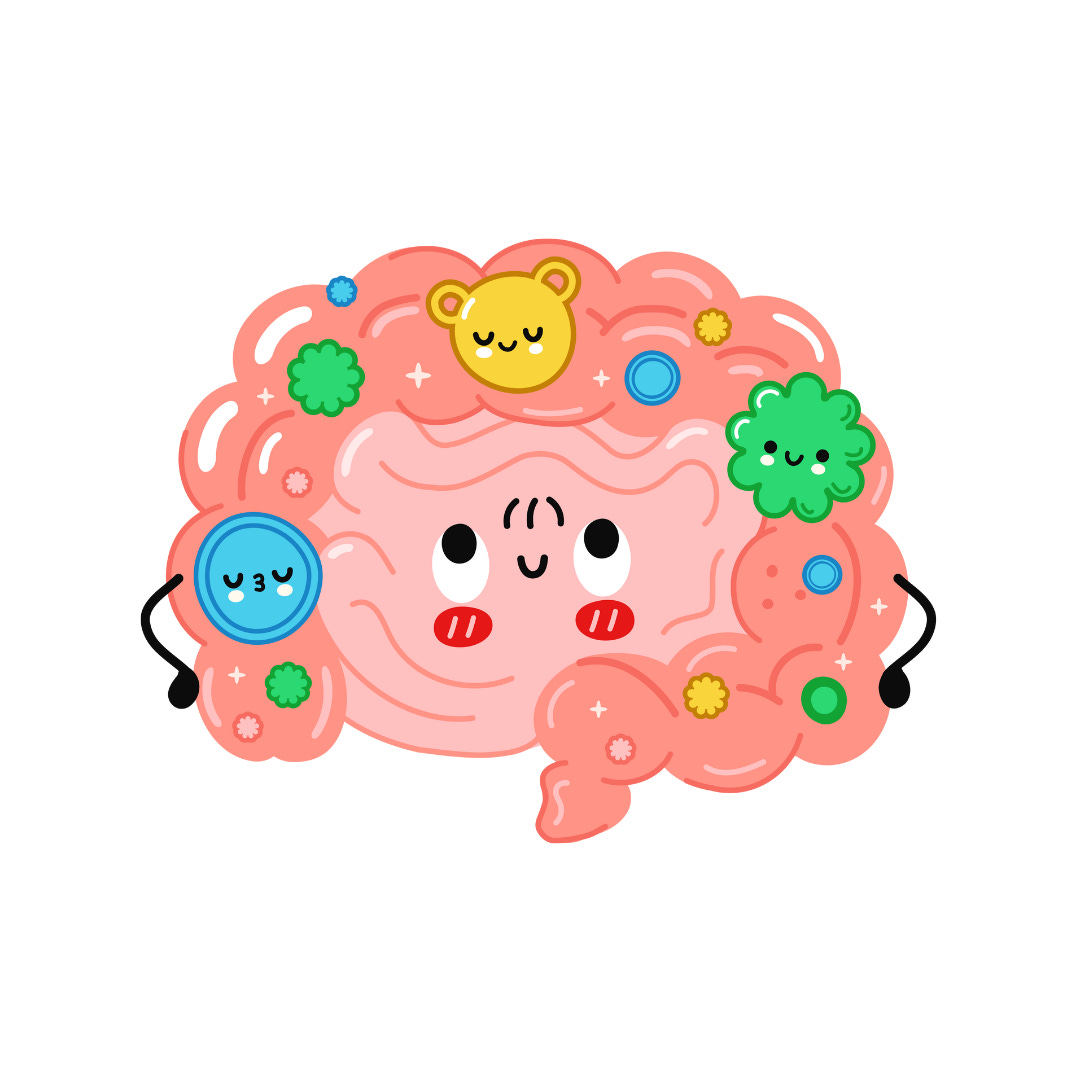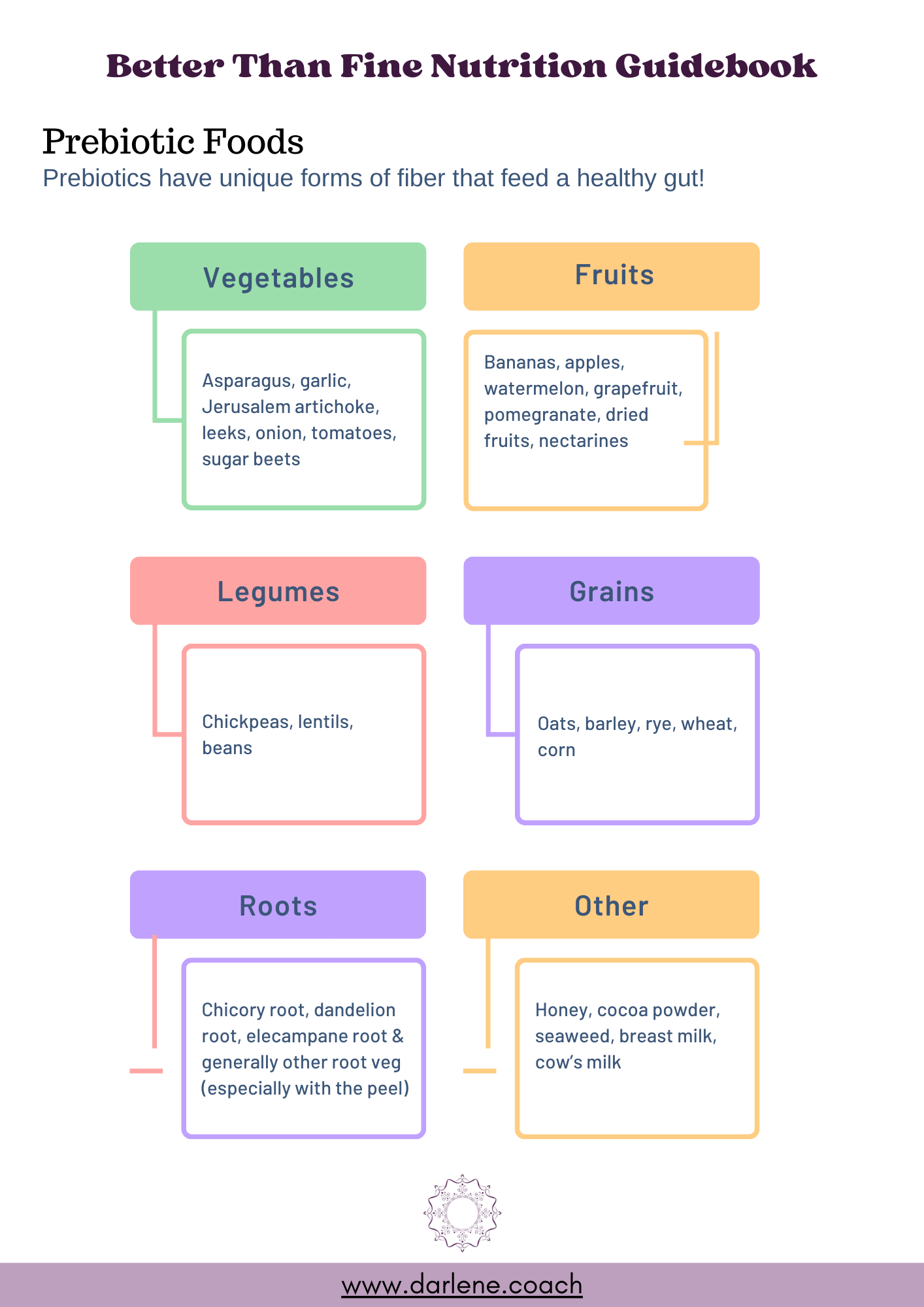There’s a lot of fast & loose information on social media about #guthealth.
If my For You page is to be believed I should:
Take a probiotic and avoid them…
Take a fiber supplement and only get fiber from natural sources…
Eat “natural oranges” (as opposed to unnatural ones?)
Use name brand essential oils
Never take any drugs or consume “chemicals” 🤦♀️
I can’t help but find it especially infuriating when the same influencers are self-contradictory, depending on which hot take is currently boiling over.
Given the depth of poor quality information and that #guthealth is trending (again), it’s time to tackle the basics of gut health. Last week’s episode and this post seek to give you a basic understanding of the gut, how it works, how to care for yours and when to get some extra help.
There’s a lot here, so let’s get to it!
What’s in your “gut”?
Your “Gut” = the gastrointestinal tract. Basically, it’s where digestion happens. Technically, that’s not your whole digestive system, just the parts where all the business of all your digestive organs take place. Specifically: the stomach, small intestine, and large intestine.
Each of those has a specific job - together it boils down to breaking up whatever you put in your body through your mouth down to it’s component bits and then getting those bits into your bloodstream and keeping things out that you don’t want in and some expelling of waste.
Your gut is healthy when it’s good at doing those things.
To understand gut health and what can do wrong, let’s walk through what happens when you eat.
How digestion works
Before you even eat - the smells, sights, and sounds, or even just thinking about food, are enough to get digestion started. Your mouth waters and digestive enzymes start flowing. That’s why you’ll smell food and then realize how hungry you are.
As you’re eating - the mouth’s job is mostly mechanical. To grind down food and prep it for the chemical action that’s on the horizon. After you swallow the real party begins.
In the stomach - when food hits your stomach enzymes are released by secondary digestive organs (which are technically not in the gut) to chemically break down food. What you eat needs to be broken down to it’s component parts that the body can absorb and use. The stomach churns and mixes everything up into a big mass called the chyme.
On to the small intestine - the chyme gets dumped into the small intestine, whose job it is to actually absorb nutrients. 90% of all nutrition is absorbed in this long tube of an organ! Different locations along the line are equipped for different nutrient absorption, which is cool and weird and wild!
Ending up in the large intestine - whose main jobs are to absorb water and electrolytes, absorb byproducts of some gut bacteria (specifically vitamin B & K) and is where the majority of your gut bacteria live. It’s final job, obviously, is to form and eliminate waste.
(Got questions on the gut microbiome? I’ll have a nerd out coming soon.)
Yeah, yeah… what about gut health?
The gut is healthy when it’s able to do it’s job. Therefore, your gut is unhealthy when:
Foods can’t be broken down fully
Unable to absorb nutrients properly
Letting things into the bloodstream
Struggling to form and eliminate waste
Each of these problems will have a different cause, symptoms, and solutions.
If you listen to the full episode (linked at the top of this post) you’ll hear all about ways in which the gut can become dysfunctional. The major takeaway: see your doctor if you suspect either of these problems. Diagnosis is relatively straightforward:
Struggling to break down and absorb foods results in nutritional deficiencies that show up in blood and urine tests. Correcting it depends on what’s going on.
“Leaky Gut” is a bro-science name for a variety of inflammatory conditions that can be diagnosed with a scan. The treatment for these conditions varies depending on what it is, but you don’t want to mess around and make something worse.
There are, however, some relatively straightforward things that can go wrong and are, in my professional experience, pretty common. They boil down to:
Not getting enough fiber
Stress negatively effecting digestion
Ultra-Processed Foods irritating the gut lining & microbiome
Not sleeping & moving enough or well
Each of these could be a post in itself (and will be soon), but for now we’ll cover it at a high level.
Not Getting Enough Fiber
The gut runs on fiber - a class of indigestible carbohydrates. Foods containing fiber are known at prebiotic because they’re the foods your microbiome eat (unlike probiotics, which contain bacteria that are sometimes found in the gut).
Here’s a list of high fiber foods from the upcoming Better Than Fine Additive Nutrition Guidebook:
Stress Impacting Digestion
Your gut is a long tube, starting at your mouth and ending… well, you know. There are muscles lining your gut that push the chyme (today’s vocab word) through the tube. That muscle action is called peristalsis (ooo, more vocab!).
Peristalsis is automatic and governed by the autonomic nervous system. When we are stressed digestion slows. Our ancestors wouldn’t have made it if their bodies wasted energy while running from hungry lions. The problem now is our nervous system can’t tell the difference between a threat watching reruns of Alone until 1a (the stress of late night screens and not enough sleep).
If digestion slows enough you’ll end up with imbalances in gut bacteria, gas accumulating, muscles, cramping, constipation, and the like. As someone who suffered IBS as a teenager, I don’t recommend it.
Cut Back on Ultra Processed Foods
UPFs aren’t great for our health overall, and that includes your gut. To learn all about how and why go here:
(Want a free guide to Ultra-Processed Foods? Get it here.)
For a deep dive into how to feed your gut read more here:
Sleep & Move
If you’ve scrolled this far you picked up on how lack of sleep is a stressor to the body and impacts peristalsis. On the flip side, getting routine movement supports peristalsis, alignment of organs, and stress reduction.
You can nerd out about how and why here:
The short version: prioritize sleep and move your body in ways that feel good.
Looking for more on your journey from survive to thrive?
There are a few ways I can help you keep it movin’:
90 Minute Wellness Roadmap (currently on sale) - Struggling or stuck? Spend 90 minutes with expert eyes looking at your own efforts to grow fitness, wellness, and wellbeing.
Free Ultra-processed Food Guide - Struggling to eat better, but also know that diets don’t work for you? Want to be healthy, but know that diet culture is big ole lie? Want someone to teach you about what food is actually bad for health? Download this freebie anytime.
Better Than Fine podcast - if you appreciate this substack you should check out the Better Than Fine podcast - we livestream new episodes every Wednesday on the NASM YouTube channel











Wow. Beautious! The best and most concise explanation of how to eat and how the body processes it I’ve read. TY!